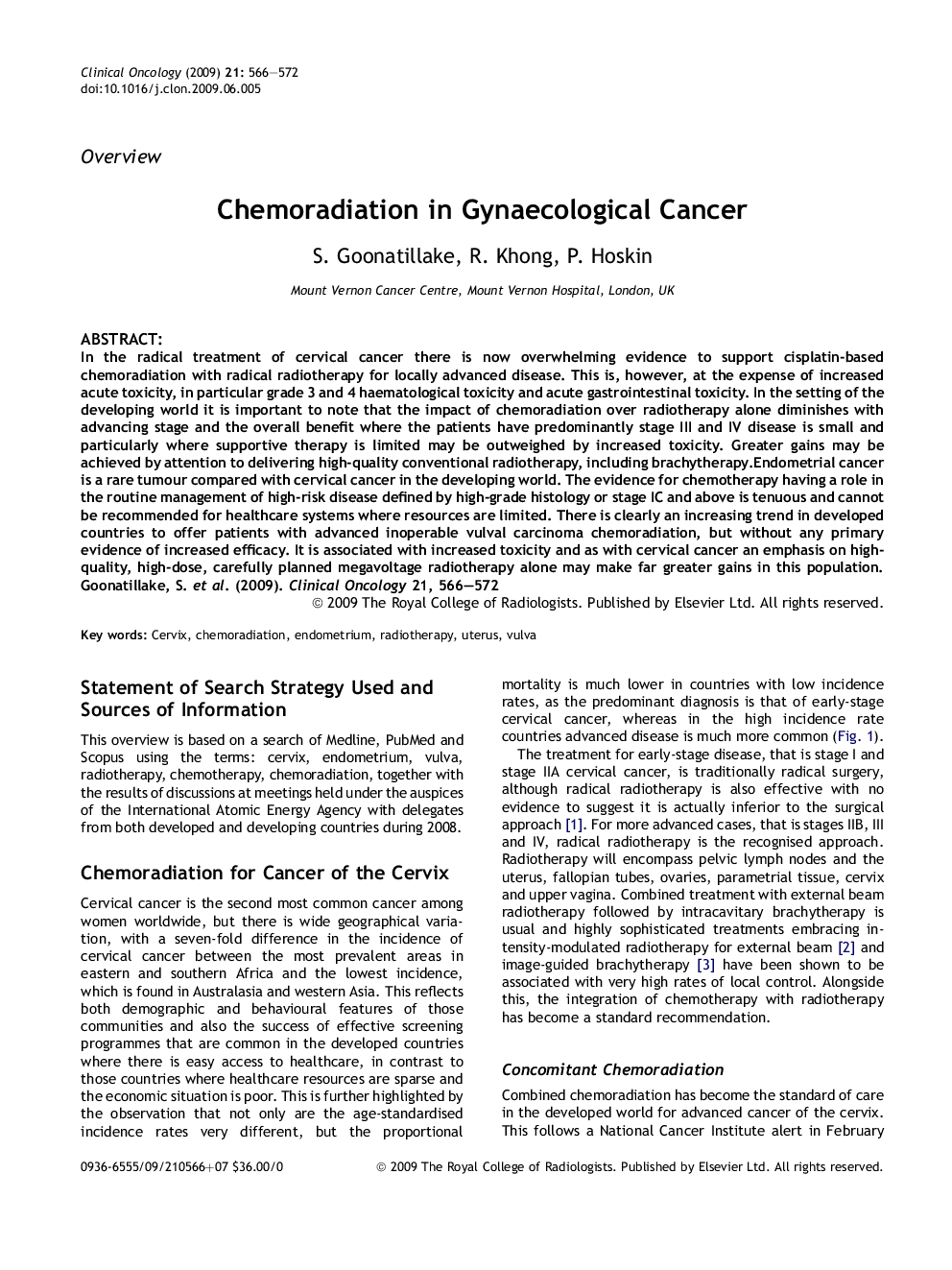| Article ID | Journal | Published Year | Pages | File Type |
|---|---|---|---|---|
| 5699224 | Clinical Oncology | 2009 | 7 Pages |
Abstract
In the radical treatment of cervical cancer there is now overwhelming evidence to support cisplatin-based chemoradiation with radical radiotherapy for locally advanced disease. This is, however, at the expense of increased acute toxicity, in particular grade 3 and 4 haematological toxicity and acute gastrointestinal toxicity. In the setting of the developing world it is important to note that the impact of chemoradiation over radiotherapy alone diminishes with advancing stage and the overall benefit where the patients have predominantly stage III and IV disease is small and particularly where supportive therapy is limited may be outweighed by increased toxicity. Greater gains may be achieved by attention to delivering high-quality conventional radiotherapy, including brachytherapy.Endometrial cancer is a rare tumour compared with cervical cancer in the developing world. The evidence for chemotherapy having a role in the routine management of high-risk disease defined by high-grade histology or stage IC and above is tenuous and cannot be recommended for healthcare systems where resources are limited. There is clearly an increasing trend in developed countries to offer patients with advanced inoperable vulval carcinoma chemoradiation, but without any primary evidence of increased efficacy. It is associated with increased toxicity and as with cervical cancer an emphasis on high-quality, high-dose, carefully planned megavoltage radiotherapy alone may make far greater gains in this population.
Related Topics
Health Sciences
Medicine and Dentistry
Oncology
Authors
S. Goonatillake, R. Khong, P. Hoskin,
